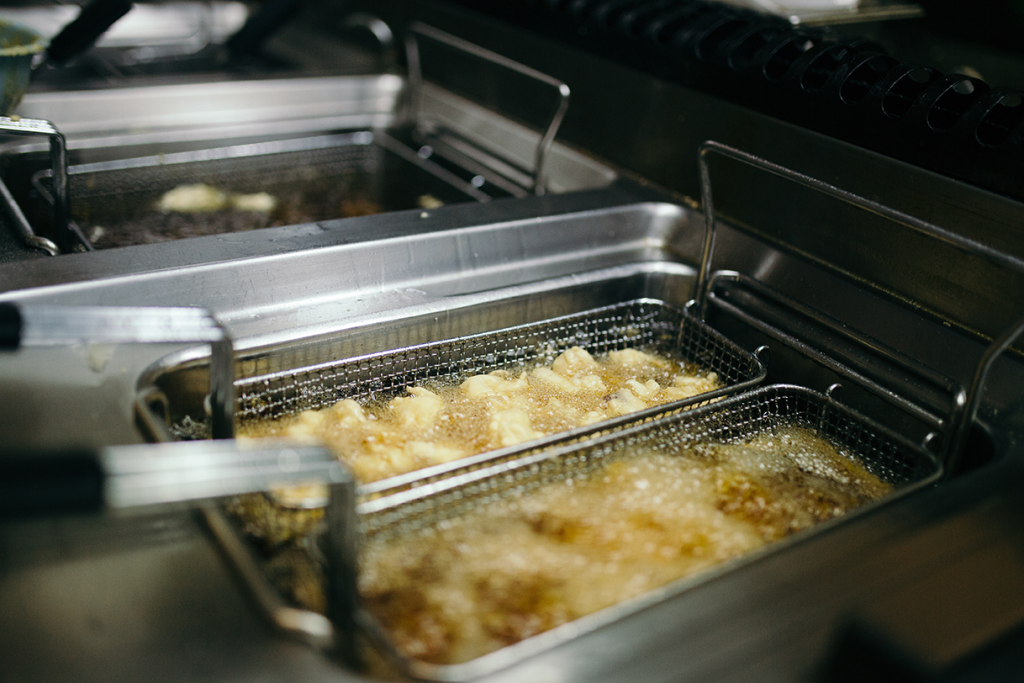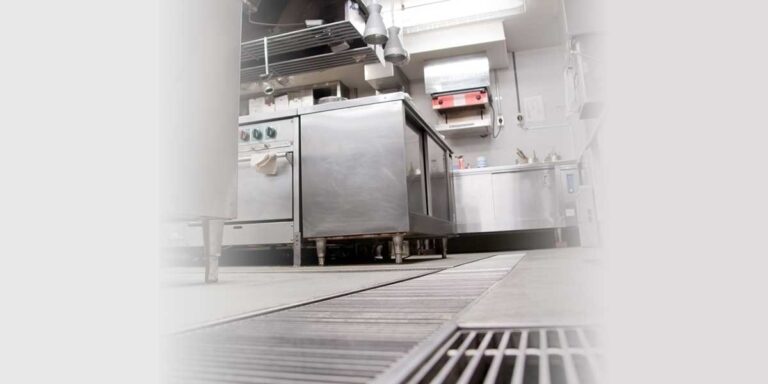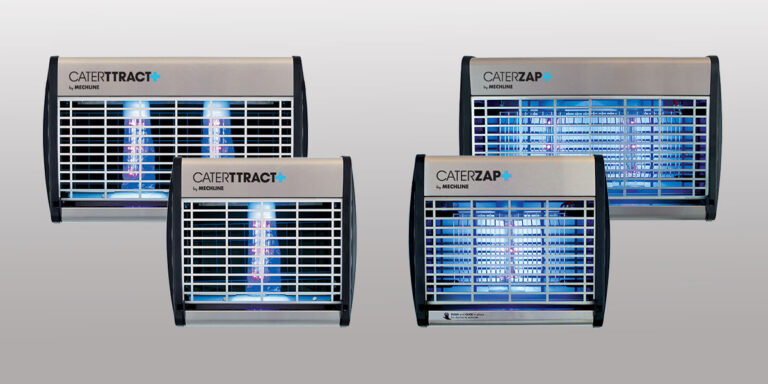When cleaning up and disposing of food waste in your commercial kitchen, it can be tempting to simply rinse fat, oil, grease and starches (FOGS) from utensils and containers down the sink or into drains… then, forget about them. But it’s important to remember that grease in wastewater can cause serious problems in your drainage system – from wastewater backing up on your property to drains overflowing on the streets beyond. FOGS from your restaurant stick to the insides of the pipes, clogging them over time and making it harder for water to pass through – and the problems don’t stop there.
Aside from forcing business owners and water companies to perform heavy-duty maintenance, oil and grease can also impact the performance of sewerage systems, wastewater treatment plants and cause sewer overflows, which affect wildlife in local ponds, streams and rivers. Worse still, polluted water poses a serious health and safety risk to humans by attracting insects and vermin. Over time, the costs of maintaining and repairing the local sewerage system get higher for both the water companies and the communities they serve.
Where does restaurant grease come from?
Most food service establishments produce grease, but clearly, some more than others – particularly those serving up deep-fried dishes. While sandwich shops obviously produce less grease than kebab shops, it doesn’t necessarily matter what kind of food you’re cooking – so long as your grease management practices and equipment are up to scratch. You may be surprised at all the sources of FOGS that exist in your commercial kitchen:
- Combination, steamer and rotisserie ovens
- Dishwasher and potwasher machines
- Potwash, pre-wash and preparation sinks
- Fryers
- Kettles and Bratt pans
- Wok stations
- Macerators / Food waste disposal units
- Floor gullies receiving residue from Bratt pans, boiling pans, kettles and floor cleaning routines
How can your restaurant reduce the impact of oil and grease in wastewater?
Releasing FOGS into the sewerage system isn’t an inevitable problem for restaurants; there’s actually plenty you can do to prevent grease entering wastewater.
Choose a suitable FOGS management solution
From standard grease traps, to automatic grease removal units and clever biological drain dosing systems that use microorganisms to help break down FOGS, there’s a solution that’s right for your venue. While it is absolutely essential that you have at least one of these options in place, we recommend that you take a layered approach, working with a professional to identify a combination of products that can have the biggest possible impact on the grease in your wastewater. We can help you with this.
Integrate Mechline’s GreasePak into your FOGS management
A practical, sustainable and cost-effective solution, our groundbreaking GreasePak is a biological drain maintenance system that degrades FOGS particles from kitchen wastewater. Wall-mounted for convenience and, importantly, cleanliness, GreasePak is an automatic dosing system that dispenses a highly effective and safe multi-strain biofluid into drains, to help you maintain clear and easily flowing water and unblocked drains that stay that way. Made up of over 500 million bacteria per gram, the solution will colonise your drains, forming a biofilm that coats the pipes and regenerates itself to produce a continuous supply of highly active bacteria, and enzymes, for FOGS degradation.
Minimise the FOGS you put down the drain
This seems obvious, but we know that carelessness in the food disposal and dishwashing process is a significant contributor to FOGS clogging the UK’s drains. Solid waste and food scrapings should be properly disposed of before entering dishwashers and pot wash stations, and any remaining bits should be caught by food waste strainers.
Recycle fryer oil
It pays to recycle your fryer oil – there are plenty of companies out there that will collect and dispose of it properly or recycle it into biodiesel fuel.
Train staff on FOGS management best practices
Your staff are your first line of defence against grease entering your wastewater. Ensure they are trained appropriately and have all the information they need on how to use and maintain equipment and best practice to prevent grease entering wastewater as they go about their duties.
Aside from the obvious environmental and infrastructural problems caused by poor FOGS management, the direct cost to your business could come in the form of hefty fines. It’s important to frequently assess your operation and identify shortfalls in your FOGS management strategy. Simple steps like upskilling your kitchen staff or installing a multi-faceted grease management system are all part of taking a proactive approach to ensuring your restaurant doesn’t contribute to the greasy problems in the UK’s sewerage system.








